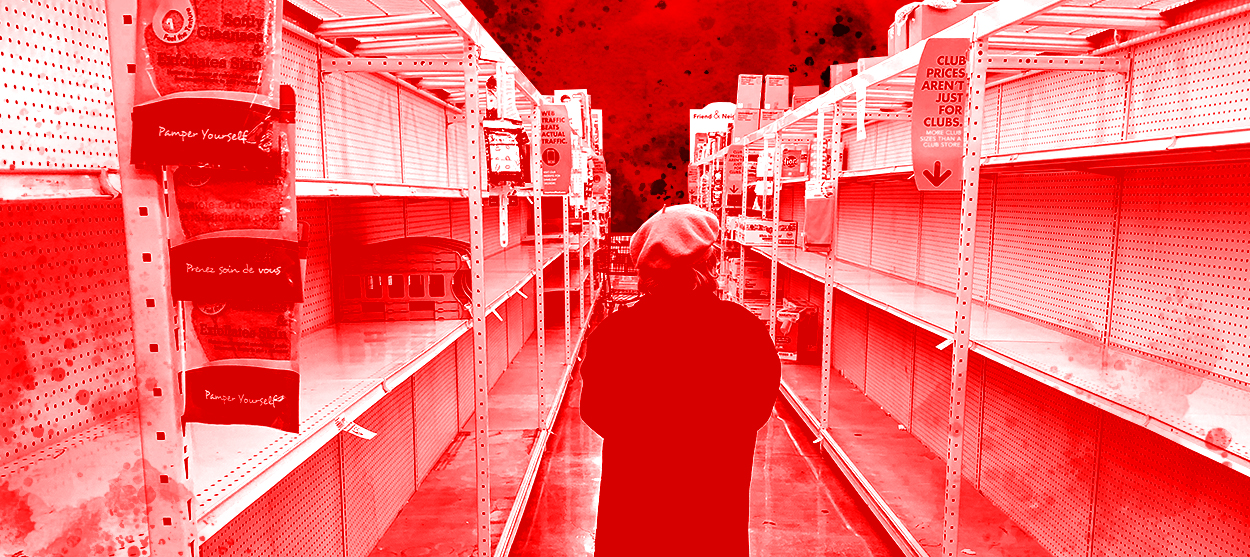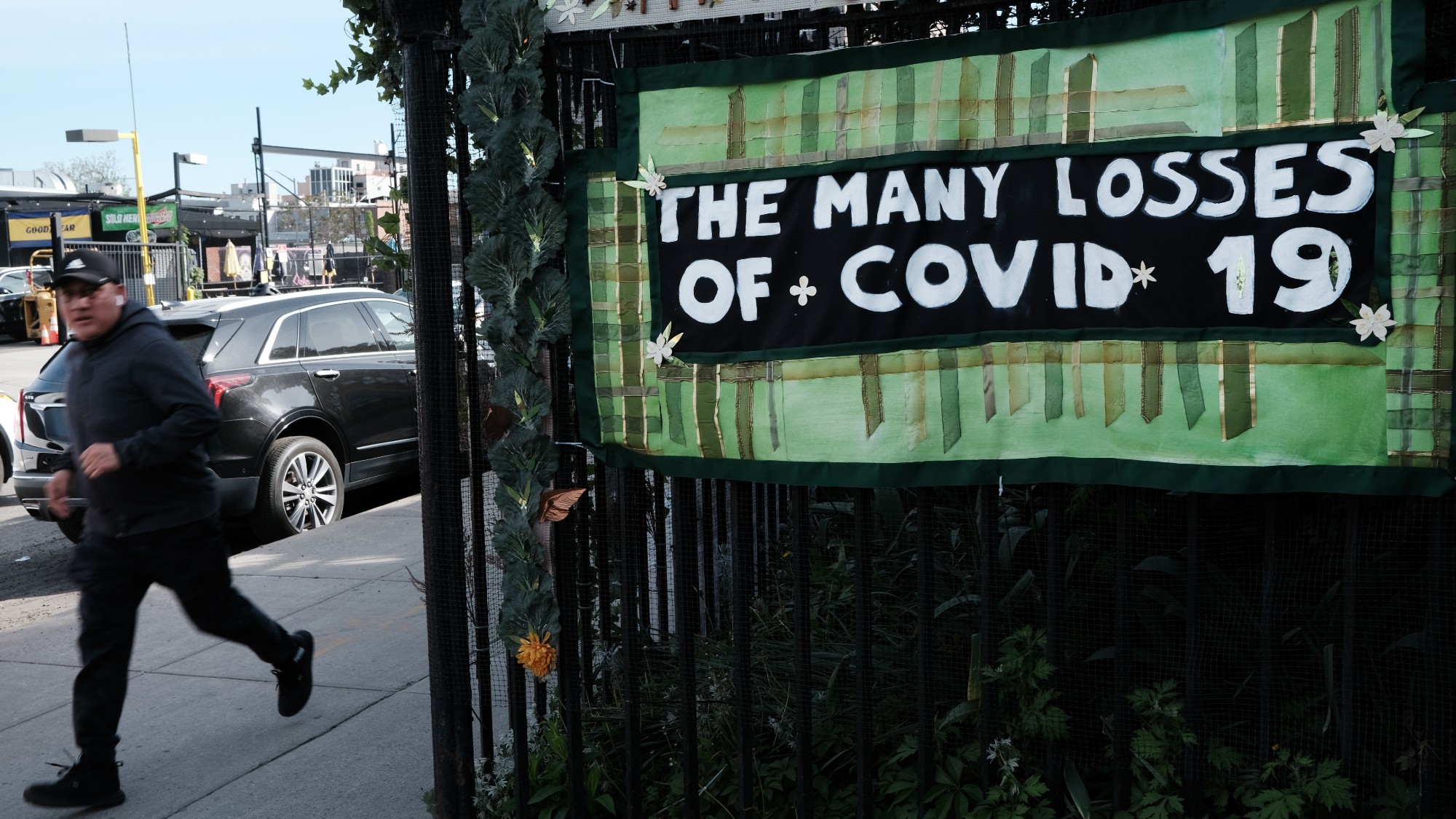Confessions of a coronavirus skeptic
Like many Americans, I'm deeply concerned about COVID-19. This hasn't always been true.


A free daily email with the biggest news stories of the day – and the best features from TheWeek.com
You are now subscribed
Your newsletter sign-up was successful
Like many Americans, I'm deeply concerned about the epidemiological and economic consequences of COVID-19. But this hasn't always been true.
For the first six weeks or so of the story — from mid-January through the beginning of March — I was a coronavirus skeptic, waving away the growing concern and alarm, mildly mocking those who warned of the danger, fretting far more about the threat of overreaction than I was about the virus itself. This began to change once the virus hit Italy hard. After the Lombardy region went into lockdown with fatalities soaring, I changed my view, realizing that this was going to be huge story. Though it still took a few more days for me to grasp just how enormous.
When news broke in January about a new pneumonia-like ailment in a Chinese province that I'd never taken note of before, my instinct was to assume that COVID-19 would end up like recent public health emergencies surrounding SARS, H1N1 (swine flu), and Ebola — bad in some places around the globe but containable, with measures taken in the U.S. barely having a noticeable effect on my personal life, my anxiety level, or the economic life of the country. Given these recent scares, a blasé response seemed reasonable.
The Week
Escape your echo chamber. Get the facts behind the news, plus analysis from multiple perspectives.

Sign up for The Week's Free Newsletters
From our morning news briefing to a weekly Good News Newsletter, get the best of The Week delivered directly to your inbox.
From our morning news briefing to a weekly Good News Newsletter, get the best of The Week delivered directly to your inbox.
But that's not the only reason I shrugged.
As a pundit and sometime media critic, I frequently note the tendency of journalists, political analysts, and activists to inflate public problems into crises — sometimes even elevating them to the level of “existential threats” that, we are told, put the survival of country or the human species in doubt. Activists do this out of political commitment, hoping the amped-up rhetoric can be used to move public opinion in their direction. Others do it because yelling “Fire!” in the crowded theater of America's digital public life is one powerful way to get attention and generate clicks.
Whatever the motive, I don't trust the hype. When stories about the coronavirus started to proliferate under alarming headlines, my instincts told me to keep my cool, assuming this would turn out to be the thousandth example in recent years of Chicken Littles crying wolf (to mix a couple of pertinent children's fables).
But that, too, is only part of the story. Beyond partisanship and the scramble for profit, a surprisingly large number of people in our public culture appear to enjoy indulging in apocalyptic thinking for its own sake. The right thinks we're hanging by a thread over an abyss of moral and religious relativism that will terminate in totalitarianism. The left sees a series of calamities raining down on us from climate change and related forms of environmental devastation.
A free daily email with the biggest news stories of the day – and the best features from TheWeek.com
I'm mildly troubled by the right's nightmare scenario and quite concerned about the left's. But neither strikes me as an existential threat to our way of life, let alone our literal existence. The tendency of both sides to exaggerate our challenges into calamities may point, instead, to a deep-seated, possibly ineradicable craving among overly coddled postmodern men and women for an experience of intense danger. Or maybe it speaks to a longing among people plagued by a nagging sense of meaningless in their lives to read themselves into a Grand Story in which Everything Is At Stake.
Whatever its source (or, more likely, mix of many sources), I'm temperamentally inclined to discount such alarmism when it arises — which, in the Trump era, is several times a week — in large part because I know from the inside how seductive (and self-deceiving) it can be to give oneself over to a well-told story of salvation, redemption, or catastrophe. In a word, I distrust such stories when others tell them because I've been there (and made my own mistakes in judgment) before.
And that points to one additional psychological dimension to my original coronavirus skepticism. As a pundit, there is a powerful temptation (enthusiastically embraced by many center-left and center-right Trump critics over the past few years) to remain in a constant state of outraged panic about everything the president does and tweets. I resisted this temptation from the start, writing a series of columns in Trump's first year in which I tried to separate out the normal, the abnormal, from the truly alarming.
Over the intervening years, I've sometimes lapsed, allowing myself to give in to indignation and disgust at the president. (Put another way, I've allowed myself to be trolled.) This was especially true on those days when I caught myself believing or hoping that the Mueller report and other investigations of Russia-related machinations would bring down the Trump presidency. In the wake of such efforts failing time and again, most recently with impeachment, I've become more jaded (maybe more cynical) than ever — and as a result, more capable of rising above the political fray.
But as with all virtues, the effort to achieve Olympian detachment becomes its own vice when taken too far. In this case, the vice is a kind of world-weary knowingness that takes pleasure in and enjoys a sense of superiority by looking down on the fears and suffering of others. This is the allure of what certain ancient skeptics called “ataraxia,” the contentment that follows from suspending one's opinions between competing options for belief and action. If I'm honest, I evaluated the COVID-19 threat during most of February in something like a pundit's version of this unflappable and untouchable state of mind.
It didn't last. My outlook was changed quite rapidly by the steady accumulation of evidence on the other side of the ledger: the virus quickly spread far beyond China, showing it was highly contagious; it began killing large numbers of people in Italy; and sick people there soon began overwhelming hospitals, forcing doctors to make horrible choices about rationing care. These three developments and the possibility of them being replicated in the United States in a matter of weeks pointed to the need for a drastic reevaluation of the situation.
The abandonment of my skepticism about the threat posed by the virus has left me greatly worried and plagued by darker doubts. Was it really necessary to put the American — and increasingly the world — economy through the trauma and destabilization of a sudden stop? Maybe that's what's required to defeat the virus, protect lives, and avoid suffering on an Italian (or worse) scale around the world. The problem is we don't really know how much economic carnage is likely to follow from our actions — or how bad the political consequences of that carnage might be. If the world is plunged into its first depression in 90 years, we may come to question the wisdom of what we have done over the past two weeks. But for the moment, we just don't know.
Uncertainty — skepticism's discontented twin — can be very hard to live with. But it's something we're all going to have to get used to. In our present dire circumstances, we simply have no other choice.
Damon Linker is a senior correspondent at TheWeek.com. He is also a former contributing editor at The New Republic and the author of The Theocons and The Religious Test.
-
 The 8 best TV shows of the 1960s
The 8 best TV shows of the 1960sThe standout shows of this decade take viewers from outer space to the Wild West
-
 Microdramas are booming
Microdramas are boomingUnder the radar Scroll to watch a whole movie
-
 The Olympic timekeepers keeping the Games on track
The Olympic timekeepers keeping the Games on trackUnder the Radar Swiss watchmaking giant Omega has been at the finish line of every Olympic Games for nearly 100 years
-
 The billionaires’ wealth tax: a catastrophe for California?
The billionaires’ wealth tax: a catastrophe for California?Talking Point Peter Thiel and Larry Page preparing to change state residency
-
 Bari Weiss’ ‘60 Minutes’ scandal is about more than one report
Bari Weiss’ ‘60 Minutes’ scandal is about more than one reportIN THE SPOTLIGHT By blocking an approved segment on a controversial prison holding US deportees in El Salvador, the editor-in-chief of CBS News has become the main story
-
 Has Zohran Mamdani shown the Democrats how to win again?
Has Zohran Mamdani shown the Democrats how to win again?Today’s Big Question New York City mayoral election touted as victory for left-wing populists but moderate centrist wins elsewhere present more complex path for Democratic Party
-
 Millions turn out for anti-Trump ‘No Kings’ rallies
Millions turn out for anti-Trump ‘No Kings’ ralliesSpeed Read An estimated 7 million people participated, 2 million more than at the first ‘No Kings’ protest in June
-
 Ghislaine Maxwell: angling for a Trump pardon
Ghislaine Maxwell: angling for a Trump pardonTalking Point Convicted sex trafficker's testimony could shed new light on president's links to Jeffrey Epstein
-
 The last words and final moments of 40 presidents
The last words and final moments of 40 presidentsThe Explainer Some are eloquent quotes worthy of the holders of the highest office in the nation, and others... aren't
-
 The JFK files: the truth at last?
The JFK files: the truth at last?In The Spotlight More than 64,000 previously classified documents relating the 1963 assassination of John F. Kennedy have been released by the Trump administration
-
 'There is a certain kind of strength in refusing to concede error'
'There is a certain kind of strength in refusing to concede error'instant opinion 'Opinion, comment and editorials of the day'
